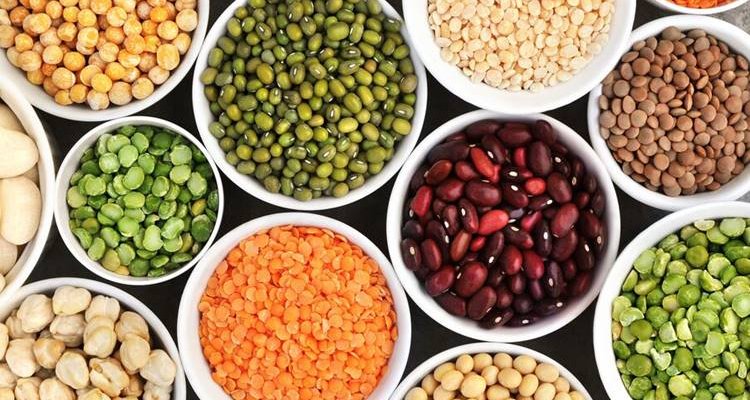Masterplan For Protein Transition Launched As Economic Engine In The Netherlands
Dutch farmers growing plant protein on a large scale and consumers eating twice as many legumes may seem like something for the distant future, but it is achievable within six years. So say Wageningen University & Research, the Dutch Ministry of Agriculture, Nature and Food Quality, the Southern Agriculture and Horticulture Organisation, Larive International B.V. and Next Food Collective, the five initiators of the master plan “Economically-Powered Protein Transition through Innovation in Chains” (EPPIC).
Deloitte calculated that the plan catalyses €2.6 billion in economic activity and contributes significantly to achieving climate and nature goals. The plan also delivers new perspectives for farmers in the transition. On behalf of the five initiators and 82 partners, the Ministry of LNV submitted an application to the Dutch National Growth Fund. It is one of 47 proposals that Ministers Adriaansens and Kaag informed the House of Representatives about on February 16th.
The shift from animal to plant-based proteins is not going fast enough to meet Dutch national goals for climate, nitrogen, and combating deforestation despite many efforts in agriculture, food industry and science, and campaigns aimed at consumers. In the Netherlands, few farmers manage to grow profitable protein crops to supply the market with local options. As a result, most plant proteins in The Netherlands, including soy, still come from abroad. Despite consumer intentions to eat less animal products, the animal:plant consumption ratio remains unbalanced. An acceleration of the transition is needed.
Higher yields
The ambition of the 87 parties is to double the consumption of legumes in the Netherlands by 2030. To achieve that goal, they are betting on a comprehensive masterplan for agriculture, the food industry and consumers. For farmers, the plan focuses on economic feasibility in growing crops high in vegetable protein, such as soybeans, peas, field beans and lupins. To do so, yields per acre must increase and plant and cultivation disease resistance must improve. The food industry needs know-how to adapt their production processes from imported soybean to Dutch legumes.
Appealing to consumers
For consumers, it’s all about changing the food choice environment, such as the offerings in the supermarket or items on a menu. This brings everyone into contact with plant-based proteins in more places and makes the sustainable choice the easy choice. One research question, for example, is whether eating meat substitutes based on plant proteins is a necessary intermediate step that eventually leads to consuming legumes that are less processed. Health aspects are also receiving attention in the research.
Economy and environment benefit
The EPPIC plan brings together ongoing research and other existing initiatives and fills in missing knowledge to accelerate the protein transition. The plan is expected to catalyse €2.6 billion in growth in economic activity. Soy bean imports can be reduced by a third. The economic benefits are also accompanied by significant environmental benefits, including a 640 million kg reduction in CO2 equivalent emissions, a 10 million kg reduction in nitrogen, and a 7% reduction in land use for the Dutch diet.
Global knowledge sharing
Finally, the knowledge gained has significance not only domestically, but is invaluable for the protein transition worldwide. ‘The Netherlands already has a tremendous amount of expertise for innovation in agriculture and the entire food chain. In the field of protein transition, now is the time to take a leading position worldwide,’ states Stacy Pyett, program leader Proteins for Life at WUR. ‘By working together with the entire value chain, we are making plant proteins more available, affordable and attractive to consumers.’ A total of €96 million has been requested from the National Growth Fund for this EPPIC plan.

